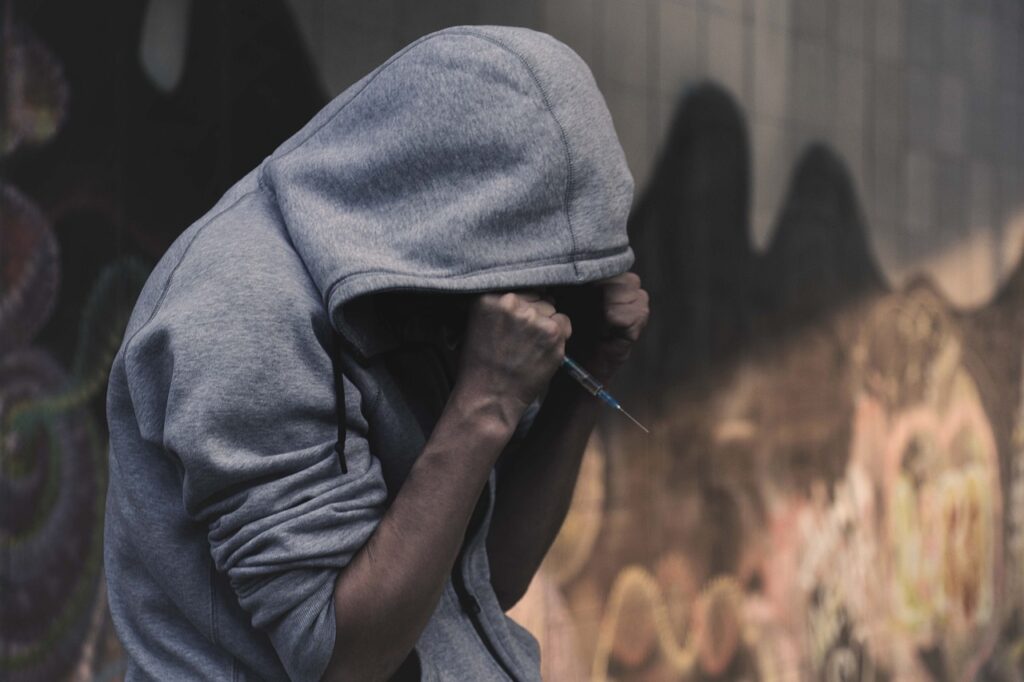
Do you suspect that a loved one may be struggling with drug addiction? Recognizing the signs early on is crucial for getting them the help they need. Alcohol & Drug Detox Centers Nearby have helped people with drug addiction as well as alcohol problems. In this blog post, we’ll delve into the subtle clues that could indicate a person is battling substance abuse. From changes in behavior to physical manifestations, we’ll explore how to spot these red flags and offer guidance on what steps you can take next. Let’s shine a light on the signs of drug addiction that often go unnoticed.
Changes in Behavior
 Changes in behavior can be one of the first indicators that someone is struggling with drug addiction. Pay attention to sudden mood swings, irritability, or unexplained aggression. Is your loved one displaying secretive behavior, such as lying about their whereabouts or being evasive when asked about their activities? Keep an eye out for a decline in personal hygiene, grooming habits, and changes in sleeping patterns. Moreover, watch for a loss of interest in hobbies or activities they once enjoyed. Are they neglecting responsibilities at work or home?
Changes in behavior can be one of the first indicators that someone is struggling with drug addiction. Pay attention to sudden mood swings, irritability, or unexplained aggression. Is your loved one displaying secretive behavior, such as lying about their whereabouts or being evasive when asked about their activities? Keep an eye out for a decline in personal hygiene, grooming habits, and changes in sleeping patterns. Moreover, watch for a loss of interest in hobbies or activities they once enjoyed. Are they neglecting responsibilities at work or home?
Physical Signs
When it comes to identifying potential drug addiction in someone, physical signs can often be one of the key indicators. These signs may not always be obvious at first glance, but paying attention to changes in a person’s appearance can offer valuable insights. One common physical sign is sudden weight loss or gain without apparent reason. This could be due to changes in appetite or the impact of drugs on metabolism. Additionally, bloodshot eyes, dilated pupils, and frequent nosebleeds could also point towards substance abuse. Skin conditions such as sores, track marks from injections, or rapid skin aging are other indicators to watch out for. Furthermore, poor personal hygiene and neglect of grooming habits might suggest that something more serious is going on beneath the surface.
Social Withdrawal
When it comes to spotting the subtle clues of drug addiction, social withdrawal can often be a key indicator. Have you noticed a friend or loved one suddenly becoming less interested in social activities they once enjoyed? Maybe they’re skipping gatherings or making excuses not to meet up with friends. Isolation and distancing oneself from others can be a way for individuals struggling with drug addiction to hide their behavior. They may feel ashamed, anxious, or preoccupied with their substance use. This change in social behavior can be gradual or sudden, depending on the severity of the addiction.
Health Problems
 Drug addiction can take a severe toll on one’s physical health, often presenting itself through various health problems. Individuals struggling with substance abuse may experience rapid weight loss or gain, frequent illnesses, and unexplained injuries. Long-term drug use can lead to cardiovascular issues, respiratory problems, liver damage, and neurological impairments. Additionally, substance abuse can weaken the immune system and make individuals more vulnerable to infections. Skin conditions such as sores or track marks from injections are also common signs of drug addiction.
Drug addiction can take a severe toll on one’s physical health, often presenting itself through various health problems. Individuals struggling with substance abuse may experience rapid weight loss or gain, frequent illnesses, and unexplained injuries. Long-term drug use can lead to cardiovascular issues, respiratory problems, liver damage, and neurological impairments. Additionally, substance abuse can weaken the immune system and make individuals more vulnerable to infections. Skin conditions such as sores or track marks from injections are also common signs of drug addiction.
Moreover, drug misuse can disrupt sleep patterns leading to chronic fatigue and mental health issues like anxiety and depression. Recognizing the signs of drug addiction in a loved one can be challenging, but by staying observant and informed, you can potentially help them seek the support they need. Changes in behavior, physical signs, social withdrawal, and health problems are all indicators that shouldn’t be overlooked. If you suspect someone is struggling with substance abuse, it’s essential to approach them with care and empathy. Encouraging them to seek professional help or offering your support can make a significant difference in their journey toward recovery. Remember, early intervention is key when it comes to addressing drug addiction issues. By being vigilant and supportive, you may be the guiding light leading someone toward a healthier path.
